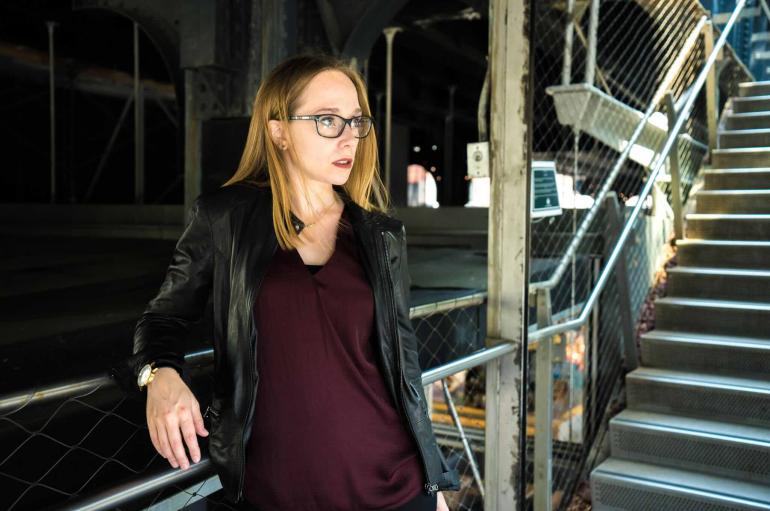
Alumna Jennifer Williams ('06) published her first book, Archaeology of the Political Unconscious: Theater and Opera in East Berlin: 1967-1977, under Routledge as part of the Advances in Theatre & Performance Studies series.
Williams received her AB with honors in Interdisciplinary Studies in the Humanities in 2006. During her time at UChicago, she played viola in the University Symphony Orchestra, New Music Ensemble, and Chamber Music Program, and received the Department of Music’s scholarship to study privately with Lyric Opera of Chicago Principal Violist Keith Conant. She wrote her undergraduate thesis, “Gazes in Conflict: Lola Lola, Spectatorship, and Cabaret in The Blue Angel," under Philip Bohlman's mentorship, which was published by Feminist German Studies as an article in 2010.
After her time at UChicago, Williams went on to complete her PhD at Cornell University. Williams' first book builds on her PhD dissertation, which included research in Berlin’s state archives supported by a Fulbright grant. She developed this research into a book because political legitimation emerged as a time-sensitive question in recent years, and she believes performance and performativity offer revealing lenses.
Learn more about the book below, and click here to order it.
---
About Archaeology of the Political Unconscious
This book investigates the aesthetic and political dialectics of East Berlin to argue how its theater and opera stages incited artists to act out, fuel, and resist the troubled construction of political legitimacy.
This volume investigates three case studies of how leading East Berlin stages excavated fragmentary materials from Weimar dramatist Bertolt Brecht’s oeuvre and repurposed them for their post‑fascist society: Uta Birnbaum’s 1967 Man Equals Man at the Berliner Ensemble, Joachim Herz’s 1977 Rise and Fall of the City of Mahagonny at the Komische Oper, and Heiner Muller’s own productions of his trailblazing plays. In each instance, reused theatrical artifacts dialectically expressed the contradictions inherent in East German political legitimacy, at once amplifying and critiquing it. Illuminated by original archival research and translations of letters and artistic ephemera published in English for the first time, and engaging with alternative East German feminist epistemologies, this book’s critical investigation of culture and political legitimacy in the shadow of Germany’s fascist past resonates beyond the Iron Curtain into the twenty‑first century. Its final chapter examines how performative artifacts influence the process of political legitimation in more recent history, ranging from Checkpoint Charlie tourism to the January 6, 2021 US insurrection.
This study will be of great interest to students and scholars in theater and performance studies, art history, musicology, German studies, anthropology, and political science.
